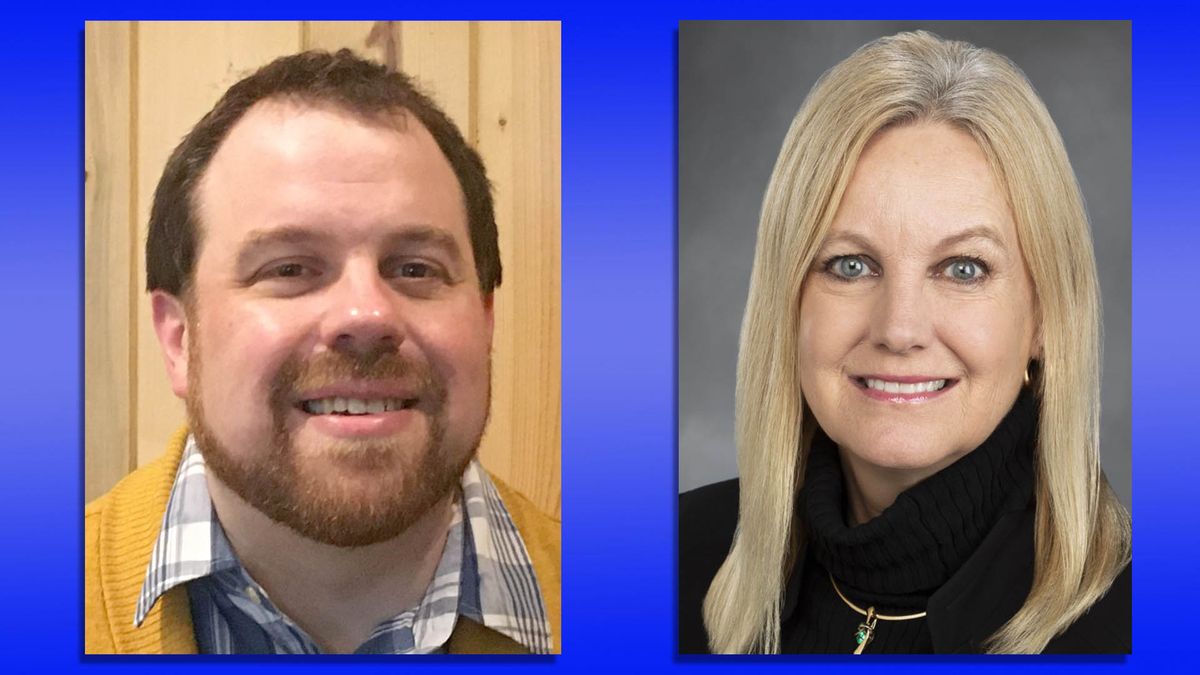State Rep. Mary Dye faces Libertarian Brett Borden on November ballot

Two candidates running for a state House seat representing southeastern Washington may not agree on everything, but they both disagree with restrictions set by Gov. Jay Inslee to slow the spread of COVID-19.
Republican incumbent state Rep. Mary Dye and Libertarian Brett Borden say the regulations were an affront to civil liberties and harmed the economy of rural communities including in the 9th Legislative District.
Dye, who was first elected to the state Legislature in 2015, said her commitment to “give a voice to the people of rural communities of Eastern Washington,” was magnified because of the highly unusual year and the complexities of ensuring the needs of rural communities are met while addressing the pandemic.
“There’s so much that we need to do when we get back to Olympia to reassess our approach to emergency management,” Dye said. “I feel like our civil liberties were offended.”
Borden said he decided to run after seeing that Dye was uncontested and he didn’t agree with the way she was voting in Olympia, which he said seemed to place more authority with the state than individuals. He said executive orders and the review to call a special session to address the budget were “undemocratic and misguided.”
“We are free people, we are not domesticated humans on the government’s farm,” he said. “People need to take responsibility for themselves and take responsibility for their families.”
Criminal penalties for people who don’t wear masks or facial coverings is unnecessary, Borden said, noting that another reason he ran was to work on criminal justice reform.
Abuses in the criminal justice sector have been steadily increasing over the years, Borden said, and right now there’s an increased awareness that the criminal justice system is not working well.
It only really works in monolithic rural areas where the population is homogeneous in terms of race and ethnicity, decreasing the possibility of inherent biases affect sentencing or arrests, he added.
Borden said he would like to tackle victimless crimes, nonviolent offenses and excessive bonds that serve to incarcerate people for minor offenses through legislation.
“We have these industries built up around imprisonment that have a goal, an incentive to have more offenders, like private prisons,” he said. “There are these industries that kind of prey off of this horrible human misery, and it’s gross.”
Borden said excessive bonds make sense if the crime is of a violent nature but doesn’t when it comes to nonviolent offenses, like drug possession. The focus on making money gets in the way of the public interest in getting convicted criminals to better themselves and end the cycle, he said.
“It’s time to talk about what the proper place law enforcement should have in our lives,” Borden said.
Dye sponsored a bill looking into the feasibility of creating an inmate rehabilitating program focused on wild horse training that was unanimously passed and signed by the governor. However, it was vetoed as legislative leaders looked to save funds during the pandemic a few months ago, so she plans to introduce the bill again.
“I would like to see us really rethink how we view people in that situation that we have kind of gone along the lines of punishment,” she said. “Why don’t we redeem their time and redeem their life in some fashion before they go back out into society,” she said.
Borden said he also hopes to reduce regulations surrounding occupational licensing that can be barriers for people who are trying to improve their livelihood. As a Libertarian, Borden said he tends to see any type of regulation with suspicion, but can admit that some extensive regulations are necessary for certain fields, like training for police officers.
“In some ways it’s easier to become a cop than it is to do something innocuous. There’s no public interest here, this is profiteering,” he said, referring to private prisons. Washington does not have private prisons.
The “one-size-fits-all approach” the governor took in response to the pandemic overlooked the needs of small-town communities, Dye said. The restrictions on small business owners had destructive economic consequences, she said.
“Those are people that are self-employed, entrepreneurial, mom-and-pop shops, and they’ve invested their lifelong savings in their dreams” she said.
The district, which encompasses many rural agricultural communities, is a major food production region. When restaurants shut down, farm products and produce were wasted as they sat stacked at the farms, Dye said.
“We’ve moved past what we could have done early, but when we go back into session we have some damage that was done to the Employment Security Department that will have a lasting impact on employers,” she said. “It increases the cost of hiring substantially unless we can fix the hole in that budget.”
Dye said she won’t consider raising taxes as a way to address the economic impacts the pandemic has had on the state. She hopes to continue working on building stronger infrastructure to aid in improving the region’s economy and improving water infrastructure.
COVID-19 illustrated for Dye the necessity of a secure domestic food supply as well as the need to fully develop agricultural land with irrigation. The first pipeline in the Odessa Aquifer Groundwater Replacement Program has been completed. The groundwater in that area was nearly depleted and this project will help preserve the area’s agricultural economy, she said.
Dye said she hopes to continue supporting the project to ensure at-risk municipalities don’t lose their water supplies .